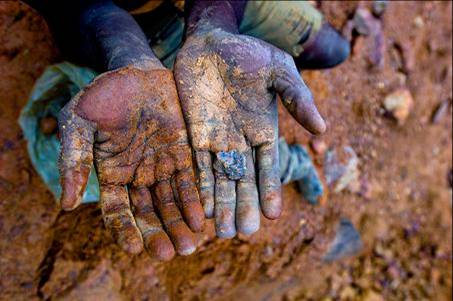
On Tuesday, February 15 Cornell University hosted an event on conflict minerals in Congo and invited me to speak about our connection to the issues and the role that a consumer campaign can play in reducing mass atrocities in the country and the region. The event was organized by Cornell Conflict-Free and the Cornell Africana Department. Cornell is on the verge of becoming the third university in the nation to pass a resolution aimed at making their campus conflict-free, after Stanford University and Westminster College. The resolution would solidify a signed agreement from the university’s administration to begin to factor whether electronics are certifiably conflict-free into their future purchasing decisions. Currently, the President of Cornell, David Skorton, is planning on making a decision on the resolution at the end of this spring semester.
Students at Cornell are also asking the university to only invest in businesses that are conflict-free, once that information is available. The following is the statement released by the student senate during the fall semester of 2010:
“With regard to its investment practices, Cornell should consider following the Stanford University Investment Committee, which in April approved a measure to invest only in businesses that are conflict mineral-free, as reported to the Securities and Exchange Commission. It is time for Cornell to join Stanford with respect to investment in conflict-free companies and urge other colleges and universities to do the same. As a collective unit, the United States higher education community holds significant economic influence that can feasibly impact the supply decisions of technology companies.”

